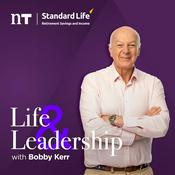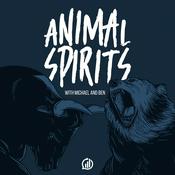95 episodes

The end of a series
19/2/2024 | 22 mins.
The latest series of Holywell Conversations podcasts began with reflections on the Good Friday Agreement, amidst fears that Northern Ireland’s devolution was over, and that series has now completed at a time when government has actually resumed.Over the series’ 18 episodes two themes have been examined – the challenges holding back reconciliation within our society, and the specific problems that continue to face the North West region.In the first episode, we heard from three people at the table negotiating the Good Friday / Belfast Agreement. Avila Kilmurray of the Women’s Coalition explained just how significant the Women’s Coalition had been in terms of successfully pushing for the Civic Forum, which many of us still mourn the loss of, as well as women’s rights and other social concerns. We also heard from Paul Bew, Lord Bew, who was influential with David Trimble’s decision to sign up to devolution. And Ray Bassett, part of the Irish government’s team, emphasised that the Good Friday Agreement was the culmination of years of conversations between all the interested parties.Subsequent podcasts reflected not just on the success of achieving devolution, but also how many of the optimistic expectations from 25 years ago have not been met. Anger at the Legacy Act, just enacted, reflects the sense of legal stalemate now reached. Early in the series, Alyson Kilpatrick – Northern Ireland’s Human Rights Commissioner – made a passionate call for respect for human rights, warning specifically about the impact of what was then being called the Legacy Bill. She also expressed concerns about calls from some members of the Conservative Party to remove the UK from the European Convention on Human Rights – which is central to the Good Friday Agreement. Those warnings remain as relevant now, as when she made them early last year. Peter Sheridan, a former senior officer with the RUC and PSNI, is now Commissioner for Investigations at the Independent Commission for Reconciliation and Information Recovery. In a recent podcast, he spoke about how events from the Troubles will be investigated as a result of the Legacy Act.But the challenges related to criminal justice lie not just with past events. Some 25 years ago there was an assumption that paramilitary groups would fade away. Instead, some have evolved into major organised crime gangs, generating substantial sums from dealing in drugs, money laundering and extortion. Taken together this constitutes ongoing coercive control of communities. Professor Dominic Bryan, who had been joint chair of the commission on Flags, Identity, Culture and Tradition, told us there needs to be a stronger focus on removing flags and other signals of territorial demarcation – which provide paramilitary groups with a continuing form of what might be termed legitimisation.Elaine Crory, lobbyist at the Women’s Resource and Development Agency, made the point in a recent podcast that the operations of paramilitaries along with the history of Troubles’ violence have reinforced gender roles in our society. This has led to Northern Ireland today recording one of the highest levels of domestic violence of any place in Western Europe.Another hangover from the Troubles that has survived a quarter of a century is the presence of peace walls – especially in Belfast, but also in Derry. In one podcast we heard from Kyra Reynolds, development worker at the Peace Barriers Programme, on the ongoing work at Derry’s Bishop Street interface, bringing populations together who come from different traditions. When the Good Friday Agreement was signed we expected not only an end to peace walls, but also the achievement of a peace dividend. Yet analysis has suggested most of the so-called peace dividend has gone South, not North. Dr Ciara Fitzpatrick of Ulster University told in one podcast of the scale of poverty that continues to affect our society, all these years on from the peace talks and agreement. Significantly, she connected the ongoing deprivation also with the continuing presence of paramilitaries. She believes that poverty is helping to keep them going. Our podcast series also considered why Derry and the North West have specifically not prospered as expected after devolution. We examined why it has not been more successful, as the poorest area in NI, in gaining funding from the UK government’s Levelling-Up Fund; the city’s limited transport connectivity; the absence of a full size university campus; and the slow progress at Derry’s two major regeneration sites of Ebrington and Fort George. As well as that we reflected on what is possibly Europe’s worst illegal waste dump, Mobuoy, in a Derry suburb.This series is now over, but all the podcasts are available on the Holywell Trust website, along with an additional new episode reflecting on the series. Holywell itself has a comprehensive programme of new activities, details of which are also on the website. That is it, for now, from us. Disclaimer: This project has received support from the Northern Ireland Community Relations Council which aims to promote a pluralist society characterised by equity, respect for diversity, and recognition of interdependence. The views expressed do not necessarily reflect those of the Community Relations Council.

Derry's University Grievance
05/2/2024 | 42 mins.
Derry has been campaigning for a full sized university campus for the last 60 years. The city still holds a grievance over the Lockwood report from 1965, which chose Coleraine for the location of the new university, rather than Derry’s existing Magee College, then a Presbyterian theological college.I once interviewed Sir Kenneth Bloomfield, the former head of the Northern Ireland Civil Service, who told me that some of the unionist politicians of the time wanted to close Magee completely, but he persuaded them not to.That context continues to influence how the university debate is seen in Derry, where student numbers today are around 5,500, rising in the near term to 6,500. While this is progress, it is still a long way short of the 10,000 aspiration specified in Derry’s regeneration plan, and which the former University for Derry group (which I co-ordinated) aspired to. It is even further behind the 20,000 student number that John Daly – economist for Ireland’s Northern and Western Regional Assembly – reports would be consistent with those of other Irish cities of similar size. John is one of the interviewees in the latest Holywell Conversations podcast, where he discusses how a larger university campus would benefit Derry and the wider North West region.But the problem is not only that Derry has too few university students, it is that Northern Ireland also has too few. There are slightly under 70,000 higher education students, spread across Ulster, Queen’s, the further education colleges and the two teacher training university colleges of Stranmillis and St Mary’s. Of these 70, 000 students, 71% are from NI, 4% from GB, 3% from RoI, and 21% are non-EU international students, paying higher fees.Wales has more than twice the number of students; Scotland has more than four times; while England has over 2.3 million HE students. England’s population is 30 times the size of Northern Ireland’s, so our student population should be about 7,000 greater if it was equivalent to that of England. If it was equivalent to Scotland, we would have nearer to 100,000. One factor is that Northern Ireland, unlike England, subsidises tuition fees for local students, which in turn limits the number of local students. That is what is called the MaSN cap, or maximum student number.The Irish Republic has over 250,000 higher education students. So the Republic has slightly fewer university students than Scotland, in keeping with having a smaller population.Investments from Ireland are going into Derry’s campus. The Irish government has provided €44.5m of capital to improve teaching facilities, which will reportedly enable an additional 1,800 students at the Derry campus. Ireland has also provided €10m to support 250 student nursing and midwifery places, of which 200 will be students from the South and 50 from the North. These numbers are split between Queen’s and Ulster’s Derry campus. Ireland is also subsidising Irish students at Derry’s medical school, training a new generation of doctors.As well as this, Ireland’s Shared Island Fund has commissioned the Royal Irish Academy to undertake a study into higher education provision in the cross-border North West region. Our latest podcast interviews Gerry McKenna of the Academy to hear what the findings are likely to be. Considerations include whether there should be an additional cross-border body overseeing higher education on the island.Ulster University provided a statement to us saying it “remains completely committed to growth at our campus in Derry~Londonderry,” adding that “substantial levels of investment, including from the University’s own reserves and surpluses, will be made into the campus in coming years. There are more students on our campus in Derry~Londonderry than ever before and we will continue to expand student numbers so as to, with our partners, continue to grow our already very significant contribution to economic and social impact in the whole of the northwest of the island.”There is a lobby group, the Derry University Group, that is arguing for the creation of a new independent university in Derry. While they were invited to participate in the podcast, they declined to do so. This podcast, and previous editions of the Holywell Conversations, can be listened to at the Holywell Trust website. Disclaimer: This project has received support from the Northern Ireland Community Relations Council which aims to promote a pluralist society characterised by equity, respect for diversity, and recognition of interdependence. The views expressed do not necessarily reflect those of the Community Relations Council.

The Legacy Act is Here
22/1/2024 | 33 mins.
The Legacy Act is Here The widely opposed Legacy Bill is now enacted as the Northern Ireland Troubles (Legacy and Reconciliation) Act, 2023. But it remains widely hated and the Irish government has launched inter-state proceedings against the UK administration. This is a clear and strong sign of how bad relations are between the two governments that are co-guarantors of the Good Friday Agreement.Out of what we can now call the Legacy Act comes the Independent Commission for Reconciliation and Information Recovery. While this body – abbreviated to ICRIR – investigates past events from the Troubles, the Act limits criminal investigations, legal proceedings, inquests and police complaints. The Act also extends the prisoner release scheme that was initially enacted in 1998. In addition, the legislation aims to provide “for experiences to be recorded and preserved and for events to be studied and memorialised”.The Irish government’s inter-state case claims that the Legacy Act reneges on previous commitments entered into by the UK government through the Stormont House Agreement. In addition, that the legislation is not victim-centred; that it is not consistent with obligations under the European Convention on Human Rights, which is a cornerstone of the Good Friday Agreement; that it is widely opposed within Northern Ireland; that it allows for the granting of immunity; and that it closes down existing police investigations and civil actions. Ireland argues that the ICRIR investigations are not a substitute for properly resourced police investigations.In the latest Holywell Conversations, Sara Duddy from the Pat Finucane Centre explains why it and the victims it represents will not co-operate with ICRIR. Coinciding with the establishment of ICRIR, the Centre has launched its own ‘Impunity Project’, through which families of victims of Troubles killings seek to challenge false allegations against dead relatives. In some cases – as with Bloody Sunday – the Army falsely accused the dead of being bombers or otherwise paramilitaries to ‘justify’ their killings.Families are now seeking two types of justice – to know the truth behind killings and to correct false allegations against dead relatives.The other interview in the latest podcast is with Peter Sheridan, a former senior officer with the RUC and PSNI who is now Commissioner for Investigations at ICRIR. He operates under the overall leadership of former Lord Chief Justice of Northern Ireland, Sir Declan Morgan, who is the Chief Commissioner.Peter says that ICRIR hopes to be fully operational in the middle of this year and explains how it will proceed and how relatives of those who died, and also those seriously injured, will be able to raise cases with ICRIR. He argues strongly that his police background will not undermine his credibility as lead investigator.With such a wide array of opponents and critics of the Legacy Act – ranging from the five largest Northern Ireland parties, to the Northern Ireland Human Rights Chief Commissioner, to the departing Victims Commissioner, to victims groups and to international human rights groups – it seems implausible that ICRIR will have an easy birth.The podcast can be listened to at the Holywell Trust website along with previous episodes. Disclaimer: This project has received support from the Northern Ireland Community Relations Council which aims to promote a pluralist society characterised by equity, respect for diversity, and recognition of interdependence. The views expressed do not necessarily reflect those of the Community Relations Council.

The Domestic Violence Crisis
04/12/2023 | 30 mins.
Women in Northern Ireland are twice as likely to be murdered as a result of domestic violence than in the other UK nations. In some years, almost half of Northern Ireland murders are connected to domestic violence. In the 2022/23 year, of 17 homicides there were 8 that resulted from domestic violence against women.Northern Ireland is also an outlier in international terms. While Finland has the highest rate of femicide by a partner, Northern Ireland is joint second with Hungary. (A report from Eurostat that found Northern Ireland and Romania to have the joint highest rate has been challenged by the PSNI as using a flawed calculation.)Domestic abuse of women goes far beyond murder and violence. There is a wider context of intimidation within the home, emotional abuse, bullying and coercive control. While this is not exclusively conducted by men on their female partners, this is the most common type of domestic abuse.There has been an assumption that a significant rise in recent years was the result of the pandemic and lockdown – with partners forced to spend 24 hours a day with each other in often very restricted environments. Yet the rate of domestic violence continued to rise after the lockdown ended.In the year ending March there were 32,875 incidents of domestic abuse reported in Northern Ireland to the PSNI. That is a slight fall over the previous year, after a consistent period of increases. Domestic abuse-related crimes increased last year, with more than 22,000 criminal incidents logged. To put that in context, there are 1.7 domestic abuse incidents for every 100 people in the population. That is in one year and that is the reported number. It represents about 20% of all reported crime in Northern Ireland.The PSNI records figures broken down according to the type of domestic incident. The most common are violence without injury. The second most common are violence with injury. The third type is harassment. The next most common – and these are less frequent – are criminal damage, theft, sexual offences and breaches of non-molestation orders. The incidents involving violence and of harassment have increased the most.There were eight of what are termed domestic abuse homicides recorded in the 2022/23 year in Northern Ireland, one of which was actually committed a few years before. In the previous years there were eight, nine, five, four and 11 homicides in each year. And that does not take into account suicides that followed from years of domestic abuse and coercive control – a point raised in a BBC documentary in recent days.The council areas with the highest numbers of reported domestic abuse are in Belfast, Armagh and Derry/Strabane. There were more than 3,000 domestic abuse incidents and more than 2,000 related crimes in Derry and Strabane in each of the last two years, with the numbers increasing.The latest Holywell Trust Conversations podcast considers the crisis of domestic violence against women, interviewing Elaine Crory, lobbyist at the Women’s Resource and Development Agency, which is campaigning against sexual harassment and violence in Northern Ireland. She says there is an underlying macho culture in Northern Ireland – itself related to the violence in the Troubles – that has enabled violence against women within relationships. She adds that the scale of the problem has often been downplayed by decision makers, while the PSNI has not always been regarded as a trusted service to report domestic crime to.The positive news is that new laws were introduced in Northern Ireland last year, which extended the definition of domestic abuse to include non-physical abuse, including coercive control, intimidation and the psychological, emotional or financial abuse of a person, and which can also include the use of digital and other technologies. More than a thousand people have been arrested as a result. And in June another new offence of non-fatal strangulation – regarded as a warning sign of a potential murder attempt – has been introduced in Northern Ireland.The law has also been strengthened in the Republic, which has in addition provided new obligations on employers to provide support to staff who are dealing with domestic abuse.A new initiative from the Belfast Trust has developed a Domestic and Sexual Violence and Abuse Support Toolkit to support staff who are being abused at home or elsewhere. We interview the trust’s Samantha Whann and Orla Barron, who explain that the toolkit was developed in partnership with trade unions and is available to other employers.The podcast is available at the https://www.holywelltrust.com/htc-episode-1-gfa-analysis-opens-new-podcast-serieshttps://www.holywelltrust.com/htc-episode-1-gfa-analysis-opens-new-podcast-series along with previous episodes.Disclaimer: This project has received support from the Northern Ireland Community Relations Council which aims to promote a pluralist society characterised by equity, respect for diversity, and recognition of interdependence. The views expressed do not necessarily reflect those of the Community Relations Council.

Learning to listen - the Thirty Project
21/11/2023 | 33 mins.
There is immense frustration across Northern Ireland’s community sector that the Civic Forum collapsed in 2002 and was not replaced. Demands are increasing for citizens’ assemblies, or similar, to provide an alternative voice to that of politicians, especially in the absence of the Assembly and Executive. Avila Kilmurray was a founder of the Women’s Coalition which led demands for the Civic Forum as part of the Good Friday Agreement negotiations. Avila makes the point that it was also the Women’s Coalition that negotiated into the GFA sections on recognising and supporting victims of the Troubles; women’s representation; community development; and a focus on housing. “The idea of the citizen’s voice, civic forum, civic assembly, whatever you call it, we thought was particularly important in Northern Ireland because of the conflict,” reflected Avila. “And because politics anyway, particularly in a contested society, draws the oxygen out from so many other issues, because everything is focused on (a) the constitutional question and (b) how you stop the violence.” Other concerns that were never mentioned, said Avila, included domestic violence – with civil servants saying at the time that it was not an issue, proven by the fact that no one raised it with them. Avila was speaking at an event to initiate a series of in-depth consultative events run by the Holywell Trust that provided mechanisms for ‘other’ voices to be heard. These were the ‘Thirty’ conversations – so-called as they each brought together around thirty individuals who were interested in drilling down into contentious matters of concern, leading to them formulating detailed recommendations on how to make progress. Those topics were legacy; education; and providing a forum for civic voices, separately, in Belfast and Derry. Catherine Cooke was one of the ‘Thirty’ participants, who is steeped in community activity in the North West, but said that what she particularly valued from the events was listening to voices that are seldom heard. “We only hear from politicians,” she says. “People came from different walks of life and it made it interesting to hear what was their priority. It was getting an insight into a new perspective.” Grainne McCloskey, another participant, said: “I thought it was a really interesting concept, innovative to be thinking about it 25 years on [from the Good Friday Agreement].” She added: “I thought it was one of best facilitated events I have ever attended,” providing exactly the right level of engagement in discussions, bringing expert voices in, as well as mixed participation from those attending. Grainne added that “a lot of things that were in the peace process are hidden from the average person in the street, not through any kind of cover up”, but because the public are not engaged in the detail of the Good Friday Agreement and party politics. “Since attending, I’m much more switched on.” She added: “I can see in my work there is a change in the way I think about it…. now when I’m shaping something where people are coming together, I make a point of pointing out some of our commonalities… There’s a lot of differences, but there are a lot of common approaches too.” Fiona Corvan of the Holywell Trust said the concept had been inspired by the success of the Citizen’s Assemblies in the South. “We wanted to give people the chance to learn and to be engaged in some divisive issues – we looked at civic engagement 25 years on from the Belfast/Good Friday Agreement and reconciling the past with a future focus.” Fiona added: “It was heartening to see that people are really interested in the issues that affect them and that are shaping our society. Quite often they are not given the chance to influence or have their say. And there is a culture of misinformation or lack of information. “We can be so consumed by news and headline news, that quite often we miss complexities and nuances around those big issues…. One of the things we are proud of is that we used a model that works elsewhere and used the learning from that on a smaller scale.” The events were financially supported by The Executive Office through its Together Building a United Community programme. The podcast is available at the Holywell Trust website along with previous episodes. A video explaining the Thirty concept can also be accessed on the Holywell website, as can the recommendations from the series of events. Disclaimer: This project has received support from the Northern Ireland Community Relations Council which aims to promote a pluralist society characterised by equity, respect for diversity, and recognition of interdependence. The views expressed do not necessarily reflect those of the Community Relations Council.
More Business podcasts
Trending Business podcasts
About Holywell Trust Conversations
Listen to Holywell Trust Conversations, The Diary Of A CEO with Steven Bartlett and many other podcasts from around the world with the radio.net app

Get the free radio.net app
- Stations and podcasts to bookmark
- Stream via Wi-Fi or Bluetooth
- Supports Carplay & Android Auto
- Many other app features
Get the free radio.net app
- Stations and podcasts to bookmark
- Stream via Wi-Fi or Bluetooth
- Supports Carplay & Android Auto
- Many other app features


Holywell Trust Conversations
download the app,
start listening.

































